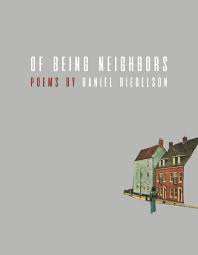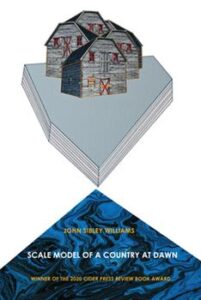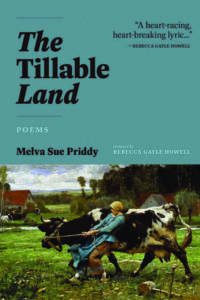Review by Darius Stewart // January 13, 2015
Too often I’ve been asked, “what exactly is poetry?”
The people who ask this question tend to be intelligent professionals—which bewilders me—and some of them, understandably, ask because they are so young; they ask because they haven’t (yet) been exposed to poetry in their compulsory curricula—at least not enough—and even if they have been exposed, the majority of them don’t know enough about poetry except that it should rhyme. I attempt to explain to all of them that poetry is about language, how it becomes an exegesis of what it means to live with our perceptions of the world around us: a world withholding a vault of experiences that conjures memories of the past, present, and future that may take us days, months, or years to comprehend—or what the poet Jack Gilbert called the “highlights and interstices,” or otherwise that “our lives happen between the memorable.” That is what poetry does. Also, it makes us think too hard, some may say, not realizing that poetry is a tool that enables us to reduce our experiences to their most salient kernels of truth and understanding, an exit from a vacuum within which we are often held hostage without a vehicle to escort us to at least a minor comprehension of the meaning “why.”
I believe poetry is mining the vast terrain of “why,” and this is what Dexter L. Booth achieves in Scratching the Ghost. Constantly, Booth is implying “why.” Given the central theme of death and loss, it seems appropriate, though Booth eschews all moments of sentimentality when writing of such moments of pathos, instead engendering the harsh realities of existing within a world of hurt and longing for answers. He wants to know “why” and thus invites you on a journey of discovery that should compel you to stop and breathe and hold the book against your chest because, as I did, you’ll feel you’ve just been thrust into Booth’s world, as if you’d been dropped down the rabbit hole and must find your way out. And this journey of self-discovery should behoove you to exact all the resilience you may possess to exorcise the ghosts in your own lives because these poems so quietly strive to do just that. In fact, many of these poems imply: haven’t we all struggled to find solace? Haven’t we all, in potent pain, and in the spirited hope for acceptance of this pain, made a way to find our way back to our former (if not happier) selves?
To understand what it means to “scratch the ghost,” let’s look to Booth’s poem, “In Favor of Company,” from the second section entitled “Little Myths Initiated by Rain.” He writes:
I barely knew her then. We sat on a bench sharing a Parliament
and an awful postcard view of rocks polka dotted with pigeon shit,
old train tracks like a monolithic machine left
to watch over the edge of the earth, water so dark beneath
its shadow that it hurt to look into. It was hot that day
and the ground was bare with the stubble of grass
hanging over the pathway like frat boys on balconies
puking out their guts before dawn.
What engages me about this particular poem is the feeling of distance masking as a feeling for want. The speaker wants company, but can only describe the atmosphere rather than the human connection the title “In Favor of Company” suggests. So what is it the speaker “favors?” If the speaker favored the woman, then why not describe her? Why not write of her attributes that attract him, or even those that don’t? But it’s not about her; rather, it’s about the distractions with which one becomes so consumed he can’t navigate between what is present and what is past. It would be too obvious a trope for Booth to make this poem about a ghost inhibiting the speaker’s ability to relate to a woman he seems to be at least smitten by. They share a Parliament, but then the “sharing ” becomes this view that, yes, they share, but the focus is in the speaker’s distraction by his surroundings, where his mind wanders, if you read between the lines; he’s imagining something else deeper—a small but curious glance into why the speaker is so self-involved and cannot be truly present. And who hasn’t had that experience? Booth is both a harbinger and a carrier of grief we all have shared, yet he wants to support hope within this grief—a sentiment he writes in so many of these poems that bear witness to our concerns of “what if this happened to me?” These are poems of redemption. These are poems of commiseration with those who share similar episodes of dealing with loss—looking back with a poet’s eye and a humanist’s heart. This is what Booth wants all of us to empathize with when he writes of a speaker who is “scratching the ghost.”
In the final section, “Long Letter to the 20th Century,” Booth writes in “Poem for My Body” a speaker that becomes almost self-elegiac, though the poem still contains the fibers of an ode—given the (subtle) passion with which the poem is written, though it is still a complicated poem to discern and categorize—which I take to be a wondrous feat when one considers the context of these poems of grieving through memory, of trying to reconcile grief, and finally of looking more inward in search for answers. Booth feels, in the end, it’s oneself that becomes the agent to one’s healing:
You are just a box. I knock against
you like a fly in a jar. When I am silly and crippled
you carry me like a penny in your pocket.
This is because you need me, maybe
for good luck or comfort. To have someone to talk to
when you are aching and alone. One day I will abandon you.
My name will be devoured by fog. You will rust
from the inside out, like a watch.
Time, in fact, will peel us apart,
sculpting your face with greasy fingers.
And I will be hair trimmed from the chin,
stolen by whatever can make use of what I become.
“[S]tolen by whatever can make use of what I become”—this, to me, echoes the anthem that readers will find so abundantly: a person grieving and, ultimately, refusing to have his life abducted by loss. And in these poems a book emerges fueled by so many moments that achieve subtle triumphs for their ability to parlay exuberance, so much that one comes away empathizing with those most human of conditions: feeling and surviving.






